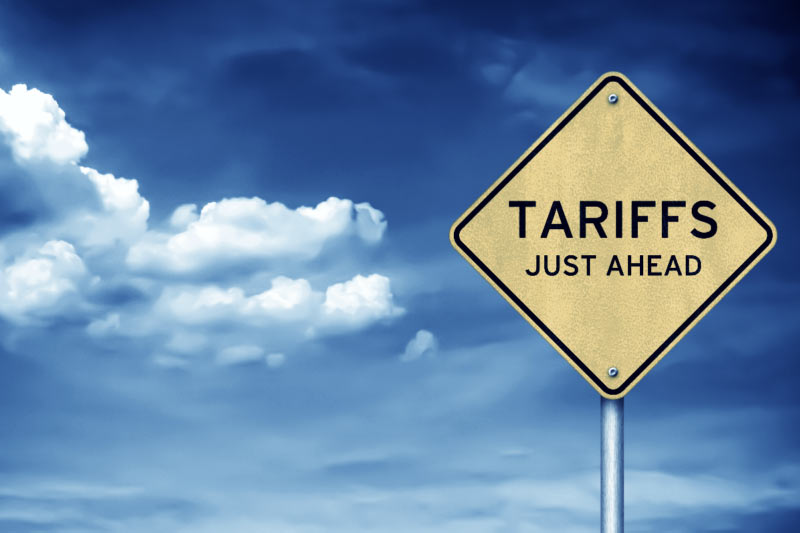Anti-dumping regulations are a significant concern for importers and exporters engaged in international trade. These measures are imposed by governments to protect domestic industries from unfair competition in the form of goods entering the market below market value.
In this article, we will explore:
- What is anti-dumping?
- Anti-dumping risks and penalties
- How importers and exporters can avoid anti-dumping regulations

About Anti-dumping
Anti-dumping measures are imposed by governments to protect domestic industries from unfair competition. Dumping occurs when foreign producers sell goods at prices lower than their home market prices or production costs, with the intention of gaining a competitive advantage or driving domestic competitors out of the market.
The Associated Risks of Anti-Dumping Regulations for Importers and Exporters
Importers and exporters face many risks when it comes to anti-dumping regulations. For importers, being accused of dumping can lead to the imposition of anti-dumping duties on imported goods. These duties are designed to level the playing field and prevent foreign producers from gaining a competitive advantage by selling goods below market value. As a result, importers may see increased import costs, insurance, and port delays, making them less competitive in the market, leading to decreased sales and profits.
For Exporters, the risks are equally significant. Being targeted by anti-dumping investigations can damage their reputation and competitiveness in the global market. If anti-dumping duties are imposed on their products, exporters may lose market share and face financial losses. In addition, navigating the complex legal processes and regulations associated with anti-dumping investigations can be time-consuming and costly for both importers and exporters.
Penalties for Anti-Dumping Violations
The penalties for anti-dumping violations vary depending on the severity of the offense and the specific regulations of the country in question. In some cases, importers may be required to pay additional duties on imported goods, which can have a significant impact on their bottom line. Exporters, on the other hand, may face restrictions on their ability to sell products in certain markets or be subject to legal actions and fines.
How to Protect Yourself from Anti-Dumping as an Importer
As an importer, there are several proactive steps you can take to avoid the risks and penalties associated with anti-dumping regulations.
First, it is crucial to thoroughly investigate your suppliers to ensure they are not engaged in dumping practices. This may involve requesting detailed cost breakdowns and production information to verify that the goods being imported are priced fairly.
Keeping abreast of changes in anti-dumping regulations and staying informed about potential investigations is essential. By staying informed, importers can take proactive steps to adjust their sourcing strategies and avoid importing goods from countries that are subject to anti-dumping measures.
Engaging in transparent communication with customs authorities and cooperating fully in any investigations can help to demonstrate compliance with anti-dumping regulations. By providing thorough documentation and evidence to support the fair pricing of imported goods, importers can mitigate the risks of facing penalties or duties.
How to Protect Yourself from Anti-Dumping as an Exporter
For exporters, mitigating the risks of anti-dumping measures requires a proactive approach to compliance.
Ensuring that pricing strategies are transparent and in line with market conditions is crucial to avoiding accusations of dumping. Exporters should carefully document their pricing calculations and production costs to demonstrate compliance with fair trade practices.
Monitor changes in anti-dumping regulations in target markets and take steps to adjust their pricing strategies accordingly. By staying informed about potential investigations and market trends, exporters can proactively address any concerns about dumping practices and mitigate the risks of facing anti-dumping duties or restrictions.
Maintaining open communication with customs authorities and cooperating fully in any investigations can help exporters demonstrate their commitment to fair trade practices. Providing comprehensive documentation and evidence to support pricing strategies can help to alleviate concerns and avoid penalties for anti-dumping violations.
Conclusion
Anti-dumping measures pose significant risks for importers and exporters engaged in international trade. By staying informed about regulations, conducting thorough due diligence on suppliers, and maintaining transparent pricing strategies, companies can avoid falling afoul of anti-dumping measures and protect their businesses from financial and reputational harm. By taking proactive steps to ensure compliance with anti-dumping regulations, importers and exporters can navigate the complexities of international trade successfully and maintain a competitive edge in the global marketplace.
How Descartes Datamyne can help
Descartes Datamyne delivers global trade data and intelligence with comprehensive, accurate, up-to-date import and export information that helps companies save significant time in spotting supply and demand shifts, optimizing trade lanes, expanding into new markets, and identifying new buyers and suppliers. It includes competitive import/export information that can help organizations reduce the risk of incurring anti-dumping and countervailing duties.
Datamyne features the world’s largest searchable trade database covering 230 markets across five continents. Gathered directly from official filings with customs agencies and trade ministries, including bills of lading, our data is detailed (down to company names and contact details), timely and authoritative.
Descartes software solutions include a landed cost tool to calculate the economic viability of importing from a range of markets. Our applications can also screen against multiple denied parties lists simultaneously to help ensure organizations are not doing business with entities named on official government watch lists.
Ask us for a free, no obligation demonstration.
Author

Chris Kahan
Senior Account Executive – Global Sales
Descartes



